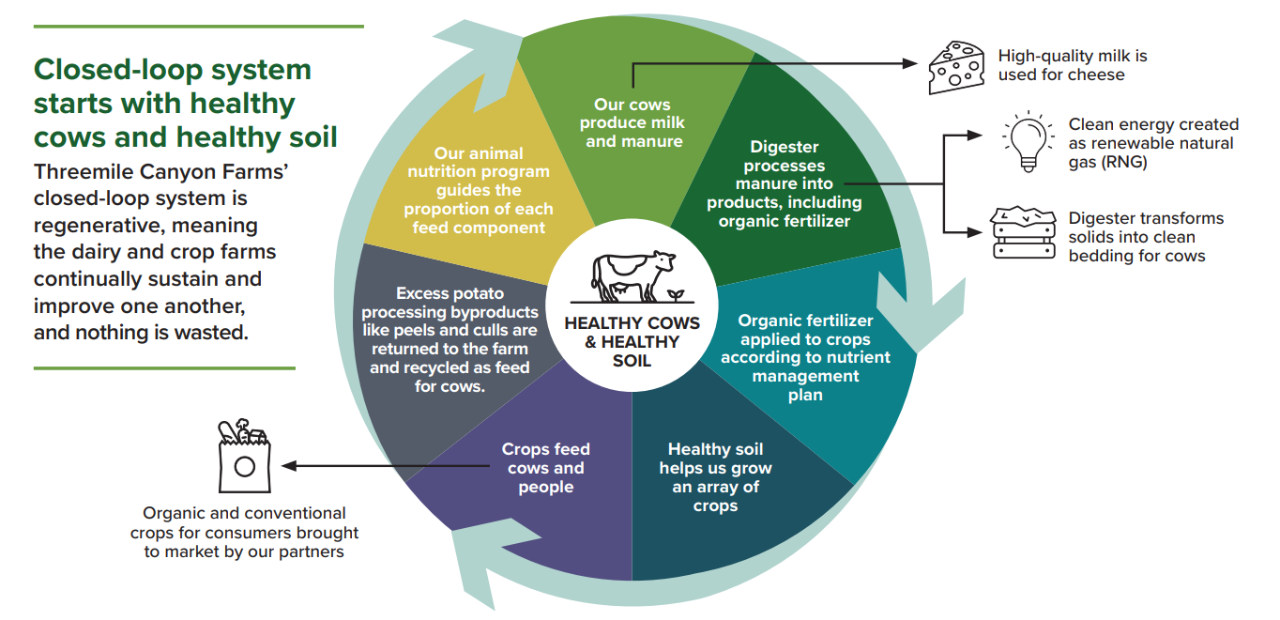Threemile’s Closed-loop System
We are proud to lead the way in modern agricultural operations through our closed-loop system. This circular agriculture system brings together crop farming and dairy production. These are highly complementary pursuits when done with care – particularly when it comes to recycling nutrients. Our on-site methane digester puts organic nutrients generated by cows to use in two key ways: producing a carbon-negative fuel source and creating healthy soils. We operate under a zero-discharge permit, which means that animal waste never enters streams or groundwater sources. As a result of our closed-loop system, we can grow crops efficiently and produce milk while also lowering our greenhouse gas emissions.

The closed-loop system follows these steps:
1. Healthy cows produce milk that is used to make high-quality cheese, as well as manure.
2. Our methane digester processes the manure, which is then transformed into the following products:
a. Clean energy in the form of Renewable Natural Gas (RNG) captured from methane that us used to fuel transportation in the U.S. The digester improves air quality while creating enough energy to generate about 1/3 of our farm’s annual power needs. The digester sequesters over 152,000 metric tons of CO2 per year. This is equivalent to the annual greenhouse gas emissions from 35,558 passenger vehicles, or CO2 emissions from 20,472 homes’ energy consumption, or carbon sequestration by 152,907 acres of forest land.
b. Solids into soft fiber clean bedding for cows that helps them stay warm and comfortable.
c. Nutrient-rich organic fertilizer that we apply to our crops.
3. Our nutrient management plan guides fertilizer application to crops. Using this natural fertilizer dramatically reduces our use of fossil fuel-based fertilizers on all crops while increasing the production of our certified organic crops. Our farm is an acknowledged leader in "green-water" application.
4. Crops are rotated to maintain healthy soil. While farmers usually rotate potatoes every third year with other crops to help replenish the soil, we've extended that rotation to grow potatoes in a given field one out of every four years. This leads to better crop quality and fewer problems with disease.
5. Organic and conventional crops are grown to feed cows and people, with the latter taken to market by our valued partners.
6. Crops are processed into feed for the cows, where our nutrition program guides the proportion of each feed component.
